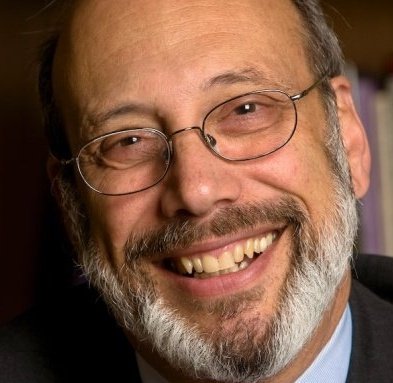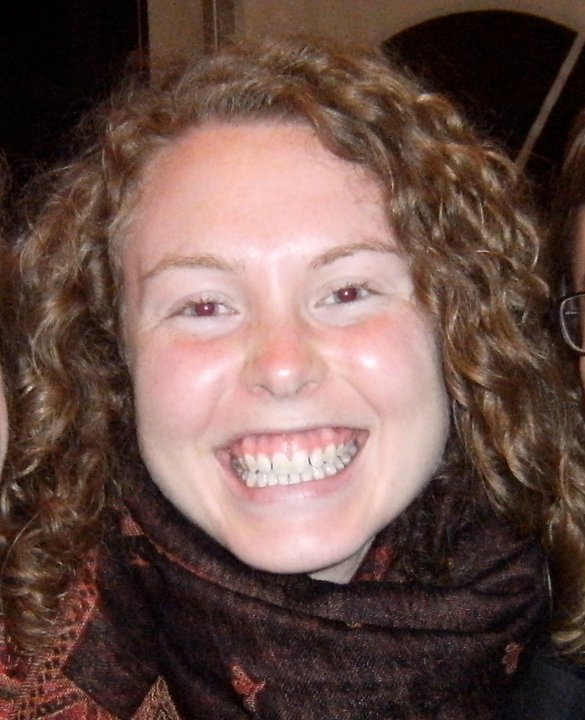
As the State of Minnesota became embroiled in a debate over a Constitutional Amendment that would prohibit same-sex couples from marrying, Plymouth Congregational Church in downtown Minneapolis began hosting monthly Sunday evening inter-faith services—called “Healing Minnesota”—for those seeking respite from the fray, a time for reflection, and the support of friends and colleagues in a safe environment. Speakers at these services have included Minneapolis’ mayor, a prominent rabbi, a Catholic priest, a national organizer for GLBT rights, and other clergy.
As Senior Minister at Plymouth, I knew that I would be called upon to speak at one of these services. I also was coming to a turning point in my own life. Spurred by a major depression six years ago, I had undertaken to face issues about my own sexuality, issues about which I had always been conscious but which I had steadfastly kept private… secret. I realized that if I was to speak with any integrity about the so-called “Marriage Amendment,” I would need to be more open about my own story. Just as important, I knew that my own spiritual growth depended on my owning that story.
What follows is the homily I delivered at a “Healing Minnesota” service on March 25, 2012:
 TELLING THE TRUTH
TELLING THE TRUTH
[Jesus said] ‘So have no fear of them; for nothing is covered up that will not be uncovered, and nothing secret that will not become known. 27What I say to you in the dark, tell in the light; and what you hear whispered, proclaim from the housetops. 28Do not fear those who kill the body but cannot kill the soul; rather fear him who can destroy both soul and body in hell. *29Are not two sparrows sold for a penny? Yet not one of them will fall to the ground unperceived by your Father. 30And even the hairs of your head are all counted. 31So do not be afraid; you are of more value than many sparrows.
(Matthew 10:26-31)
At one point in her triumphant novel, My Antonia, Willa Cather has Antonia speaking to her life-long friend, Jim Burden. Because I share that character’s given name, I have always felt as though Antonia is speaking to me when she says, “Ain’t it wonderful, Jim, how much people can mean to one another?” Well, it is wonderful. It is more wonderful than I can say. And just now I am thinking about a small group of people—friends, colleagues, my wife and daughters, who have been helpful to me in writing this talk, in telling this story. I’m pretty sure that it would still be stuck in my throat if it were not for them, their insights, their patience, their encouragement, and their love. Wonderful. Wonderful.
Will you pray with me? Holy One, split my words open, like logs for the fire. Eternal one, be the conflagration that consumes our hearts and makes them new. Amen.
___________________________________________
I am no longer able, with any integrity, to claim the label “straight.” I don’t know if there is a better word, but that one never fit me. It always harbored a secret. And its privileges and protections, which I have benefited from, now seem odiously fraudulent and personally damning.
___________________________________________
I wonder whether there is a more tender, more impressionable age than 13, 14. Do you remember? The loves at that age—even if they only last a few weeks—feel deep and thrilling and eternal. The hurts really hurt. A word of praise from the right person is like a golden goblet from which one can drink again and again… and a harsh word is like an eternal gall. And at the heart of it all there is a growing awakening to an inner life, parts of which are glorious, and parts of which are dark and need to be kept—one knows instinctively—secret. But, the scripture says, “nothing [is] secret that will not be known.”
In 1961, when I was 14 (and yes, I’ll pause now so that you can do the math), a short film was shown to the boys in our 8th grade class in South Pasadena, California. The film was entitled “Boys Beware,” and it was a cautionary piece that consisted of four vignettes depicting homosexual men as twisted, dangerous, and predatory creatures who preyed on, and sometimes murdered, teenage boys. Over some creepily cheery “Leave It To Beaver” type music, you watched as young Mike got in the car of an older stranger, while the narrator intoned, “and that night, Mike traded his life for a newspaper headline.” I watched the film again online a couple of months ago and I remembered, as though it were yesterday, the snickering of my friends in the audience, and I remembered that I felt—without understanding why—an inky wave of shame wash over me. You see, there was a ninth-grade boy—his name was Rich—and I felt… well, what was it I felt about him? I guess you’d have to call it a crush. Yes, that’s it, a crush. It was, for me, the first of those romantic, erotic storms that most of us have weathered in our lives. So, I wondered, if I felt that about Rich, what was the film saying about me?
Perhaps it legitimately saved some boy from trusting the wrong person. Perhaps. And if so, that’s to the good. But how many other boys like me—13, 14 years old, with all the inner uncertainty of that early adolescence—were taught to loathe ourselves, our secret feelings, and to recoil in fear at the possibility that we might turn into one of the slimy creatures depicted on the screen? And so a real, and good, and ineradicable part of me went underground, sought shelter, and trembled with fear. I doubt whether today’s schoolyard brutes have anything on the culturally-approved bullying embodied in that film, its ilk, and the attitudes behind it. It made sure that I would keep my secret. But, the scripture says, “nothing [is] secret that will not be known.”
___________________________________________
Do we really imagine that the Creator who filigrees the leaf and whose palette is infinite and whose imagination is growing faster than the expanding universe can only come up with a handful of sexualities and that each of us must belong to one of those?
___________________________________________
Another story. In the first summer of my marriage, my wife Sam and I had a job running a “coffee house” in the basement of a Methodist Church in Armonk, NY. Our work was underwritten by an anti-drug campaign, and we were to provide such wholesome entertainment and community for local teenagers that they would instantly turn away from drugs. My God, how naïve we were! At some point that summer, two young men began frequenting the coffee house. They were obviously a couple and were quite open in their displays of affection for one another. When word about this reached the pastor of the church, he called me into his office and ordered me to ban that couple from the coffee house. Newly married, needing the job, intimidated by the pastor’s position, I caved. I met with the two lovers and, rationalizing that polite words might somehow soften what was essentially a violent action, I told them that we just couldn’t have them at the coffee house any more. I remember them being disarmingly gracious and accepting of this, and as I left them, I had the distinct realization that they had held the high ground and that I had betrayed something important… that, in fact, I had just betrayed myself. That, too, was a secret. But, the scriptures say, “nothing [is] secret that will not be known.”
There is no straight line to be drawn from my hot-coal shame of seeing the film to my failure of nerve in the coffee house to the person I am today. Nothing is really that clear to me. Our sexuality—my sexuality—is a Jackson Pollock tangle that defies simple answers, simple descriptions, simple emotions. Like a dense and exuberant thrill of paint splayed across a canvas, it refuses to be defined, even by minds that fear and resist the untrammeled inventiveness of the Creator. The energy that was quickened in me once by another male was driven underground, but it never left and still vibrates in me, and at the same time, I revel in my forty-year marriage to a woman who always makes my heart beat faster and who blesses my body and whom I love more with each passing day.
From where I stand, few things are as damaging as the conceit that each of us must somehow fit a neat category—G, L, B, T, Q, S… whatever. Do we really imagine that the Creator who filigrees the leaf and whose palette is infinite and whose imagination is growing faster than the expanding universe can only come up with a handful of sexualities and that each of us must belong to one of those? On the contrary, I have found in my own life that sexuality is more like a “fingerprint”—a whirling, beautiful, and absolutely unique mixture of attractions, affections, gender identifications, and erotic tendencies. I know this: that though my life choices and my commitments remain—happily, firmly—what they have always been, at this point in my life I am no longer able, with any integrity, to claim the label “straight.” I don’t know if there is a better word, but that one never fit me. It always harbored a secret. And its privileges and protections, which I have benefited from, now seem odiously fraudulent and personally damning. As the scriptures say, “nothing [is] secret that will not be known.”
___________________________________________
All the law can do is attempt to hide or suppress some of love’s expressions so that there is an illusion of homogeneity in the culture. It won’t work. What will be hidden will be revealed. So, dear friends, let us have no fear. And let us—whether early in our life or late—come to love
ourselves as God loves us—just as we are.
___________________________________________
In coming to this, I have had any number of exemplars, heroes, including some of you in this room. You are heroes for your honesty, heroes for your courage, heroes for your hope, heroes for your indomitable joy. Bless you for the example you give us all. Bless you for opening the way for others. Bless you for your patience with others of us who have been slower to muster our courage. Bless you for reminding us of a God who simply will not be constrained by narrow human notions of what makes a whole and healthy human being. You have claimed an identity—not to hew to arbitrary categories, but to rightly celebrate yourself and the person God made you to be. Let me say it again: Bless you for the gift you are to the world.
Jesus said, “For have no fear of them, for there is nothing covered that will not be uncovered, nothing secret that will not become known.” I used to tremble at those words. They always felt threatening, like an invasion. But no more. I feel that my own life, all 65 years of it, has been a slow uncovering—sometimes graceful, sometimes tortured—a life revealing itself to me, to my wife and lover and partner, Sam, to my friends, to my colleagues, to the world. Not a revealing in just one dimension, but in a hundred dimensions. And the adolescent shame and the self-betrayals of early adulthood simply do not have the power over me that they once had. “Have no fear of them,” Jesus said, and slowly, slowly, the fear is abating. To say that I don’t fit someone else’s narrow and rigid categories—gay or straight, masculine or feminine, believer or doubter, liberal or conservative—is to say, simply, that I am, that I am made in the image of the infinitely becoming God, and that it is all, by the grace of God, good, and worthy of being uncovered. Of course, the secret, once revealed, will not be hidden again. But neither must it be held continuously for public view. We—all of us—deserve our privacy. Mine, I know, is important to me.
We gather as a community, as a people, who wait expectantly for the reign of love in all its manifestations. We know that if even a hundred—a thousand—constricting amendments are passed they will not change—even by a hair’s breadth—the ways in which people love or the ways in which they gather into families. The love will always be there; the families—in every configuration—will endure. All the law can do is attempt to hide or suppress some of love’s expressions so that there is an illusion of homogeneity in the culture. It won’t work. The secret will be known; what has been hidden will be revealed: namely, that the ways of love and family and of sexuality are infinitely varied. So, dear friends, let us have no fear. Let us celebrate the creative God who is alive in each of us, especially in the revealing, the unfolding, the opening of our stories one to another. And let us—whether early in our life or late—come to love ourselves as God loves us—just as we are.
Amen.
Check out the entire National Coming Out Week series, featuring the stories of LGBTQ candidates for ordained ministry, with an introduction from Rev. Mieke Vandersall in “Telling Our Stories: We Are Pastors Who Happen To Be Gay“
 Jim Gertmenian is a graduate of Oberlin College and Union Theological Seminary and has served Presbyterian and UCC pastorates in New York, Connecticut, and Minnesota. He is currently in his 17th year as Senior Minister at Plymouth Congregational Church in Minneapolis. He is one of the founders of the Plymouth Church Neighborhood Foundation which has produced more than $50 million worth of housing for homeless and low-income people since 2000. In addition, he is a hymn-writer, and a number of his works appear in various denominational hymnals. He is married to Susan Deborah King, a poet and retreat leader.
Jim Gertmenian is a graduate of Oberlin College and Union Theological Seminary and has served Presbyterian and UCC pastorates in New York, Connecticut, and Minnesota. He is currently in his 17th year as Senior Minister at Plymouth Congregational Church in Minneapolis. He is one of the founders of the Plymouth Church Neighborhood Foundation which has produced more than $50 million worth of housing for homeless and low-income people since 2000. In addition, he is a hymn-writer, and a number of his works appear in various denominational hymnals. He is married to Susan Deborah King, a poet and retreat leader.






Unbound Social